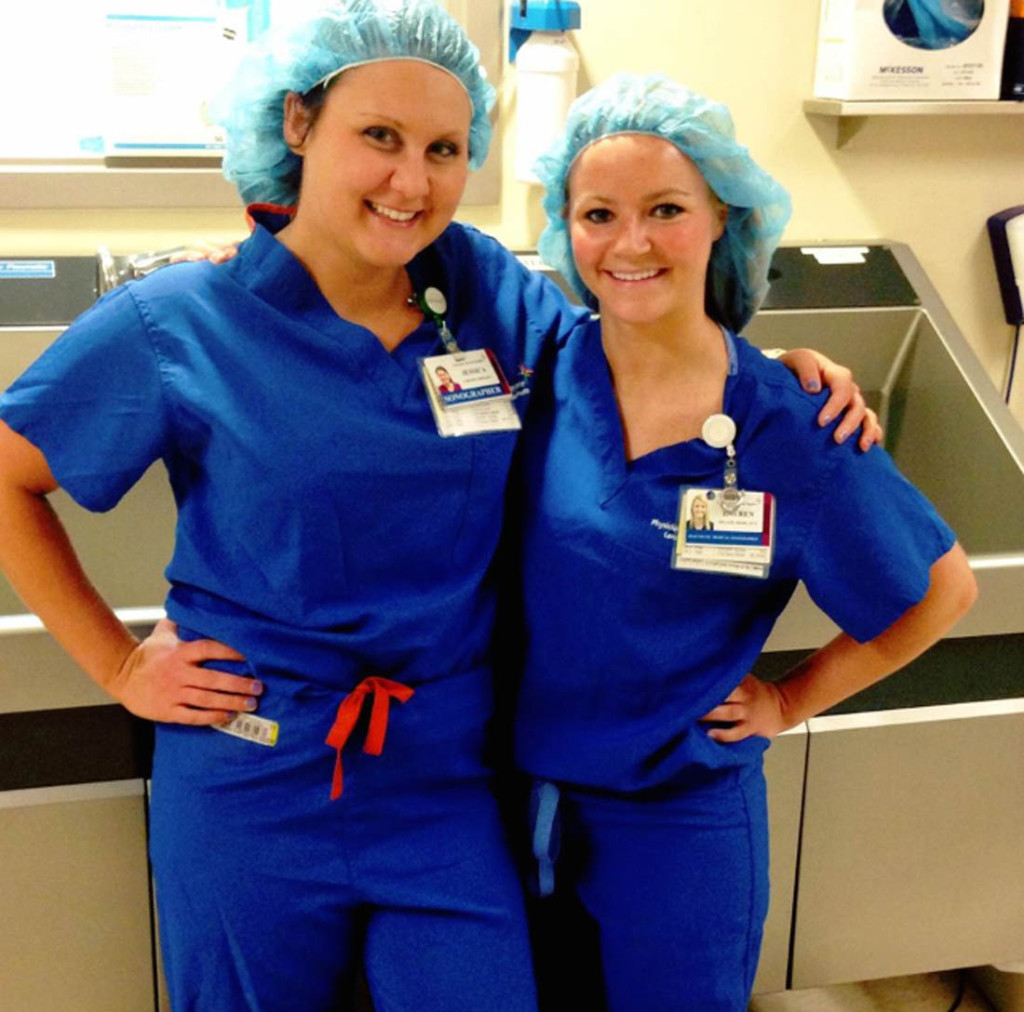Your complete Diagnostic Medical Sonography career guide, from planning your education to advancing in the field.
So You Want To Be A Sonographer?

what you’ll learn
A diagnostic medical sonographer is a healthcare professional that utilizes specialized equipment, skills, and knowledge to aid in medical diagnosis. This ebook is designed with the learner in mind, getting you started on the right path to become a successful sonographer.
Finding the Right Sonography Program

what you’ll learn
Two year degree? Four Year degree? CAAHEP-accredited? How do I know which is the best program? In this step we will discuss basic program formats, helping potential students discover what works best for their life and career goals.
Complete Your Degree

what you’ll learn
Becoming a sonographer requires more than time in the classroom. From hitting the books to learning in a lab setting to putting it together in clinical practice, this step will give you an overview of sonography program formats.
Obtaining Your Certification

what you’ll learn
Obtaining professional credentials is crucial to obtaining and maintaining employment. In this step,we discuss the process of becoming certified through important organizations such as the American Registry for Diagnostic Medical Sonography and Cardiovascular Credentialing International.
Applying for Jobs

what you’ll learn
Payday is within your reach! Explore the job market and other need-to-know information on joining the ranks as a sonographer in the healthcare industry. Resumes, interviews, and first day on the job– we cover it here.
Maintaining Certification

what you’ll learn
Part of being a professional in healthcare means learning never stops. Understand the steps to maintaining your certification(s) as a sonographer through professional certification annual dues, licensure fees, and continuing medical education (CMEs).
1 resource
Exploring Growth in Your Career

what you’ll learn
Learn some of the ways sonographers advance their careers. In this step you will learn that performing ultrasounds isn’t the only to have a long, meaningful career in the sonography field. In this step, interviews with industry professionals give a glimpse at what the future could be like should you choose to pursue career advancement.
Contributors the UltrasoundSchoolsInfo.com How to Become a Sonographer guide include:
- Samantha Callis, MHA, RDMS, RDCS, RVT
- Candice Sellers, A.S., RDMS
- Tricia Turner BS, RDMS, RVT
- Tatym Schneider CRS, RDMS
More Inspiration
How should students decide which sonography specialty to study?
“The student needs to determine what area of the body is of most interest to them. Don’t look at the job market – it fluctuates, as do salary ranges and job responsibilities.
Each student should research, job shadow/observe and speak with professionals or other sonography students – learn how they determined their specialty area. But honestly, from most educator perspectives, you can’t make a bad decision. The bottom line is that the foundation of all the specialties is sonography. They are all interesting, ever-changing and challenging.” – Tricia Turner (BS, RDMS, RVT)

Below you will find a selection of articles and interviews that may help you better understand what it is truly like to put on your clean and crisp scrubs, step into your clinic, as an important member of a healthcare team. If you find their stories inspiring or informative, perhaps becoming a diagnostic medical sonographer is a path worth exploring.
Five Biggest Mistakes to Avoid as an Online Student
Anatomy Physiology Course: A Student’s Perspective
What Makes a Great Sonographer?
An R.N. Shares Her Job Search Tips

What inspired you to enroll in the Diagnostic Medical Sonography program?
“I always knew I wanted to pursue a job in the medical field. During my senior year of high school, I shadowed a sonographer for a few months and decided that the ultrasound program sounded exciting!” – Jessica Carlino, RDMS, RVT
Tips For High Schools Students
A strong start, a solid foundation. When it comes time to choose electives, be sure to keep your ultimate goal in mind. If you want a career in the health care industry, it’s wise to study math, science, English, and health in high school. Be sure to study hard, and get good grades. This will put you in a good position when it comes time to look at higher education. A vocational or community college will require you to have your high school or your General Education Diploma for admittance into their degree or program. Good SAT scores and high marks in school will give you an advantage if the college has limited & enrollment.

